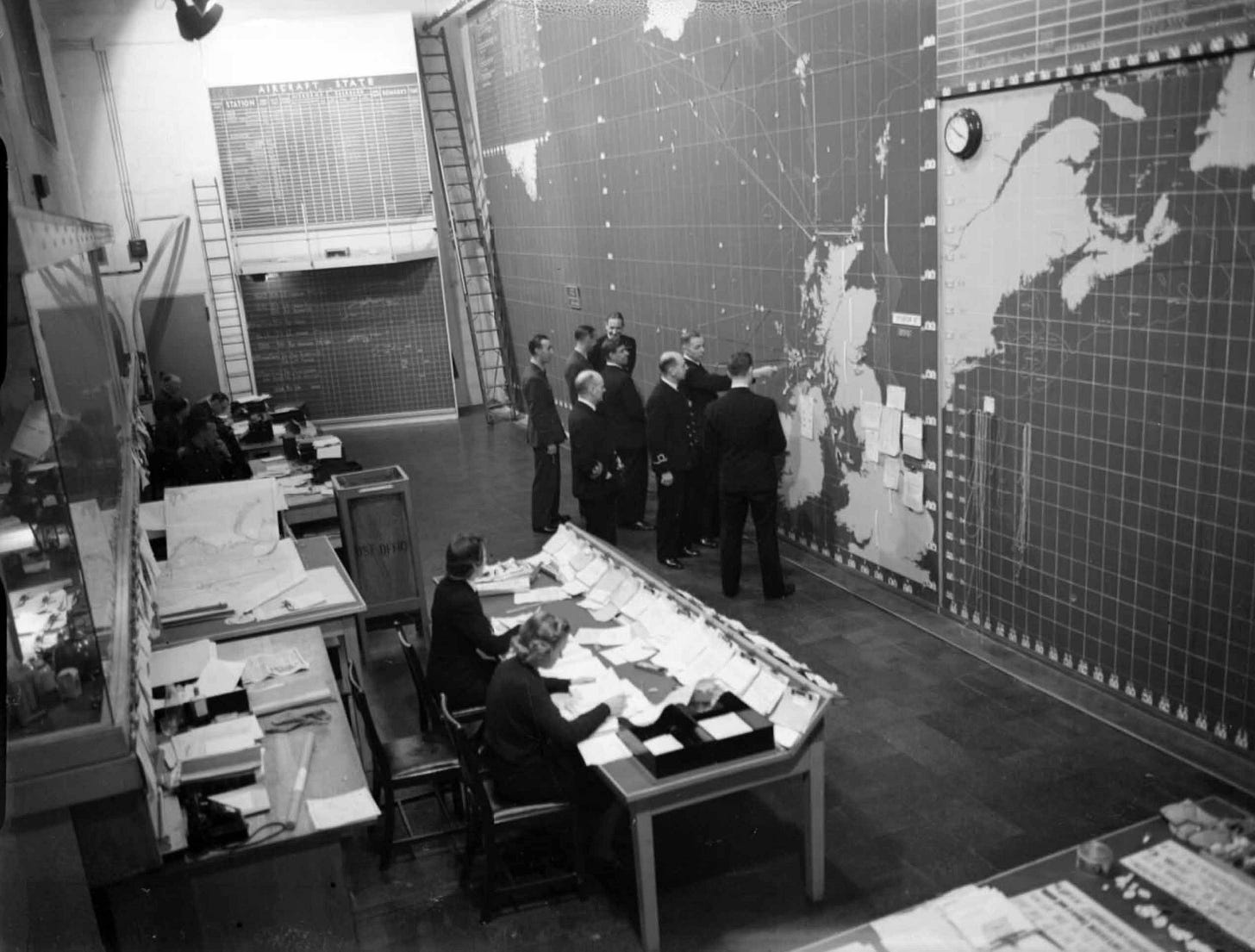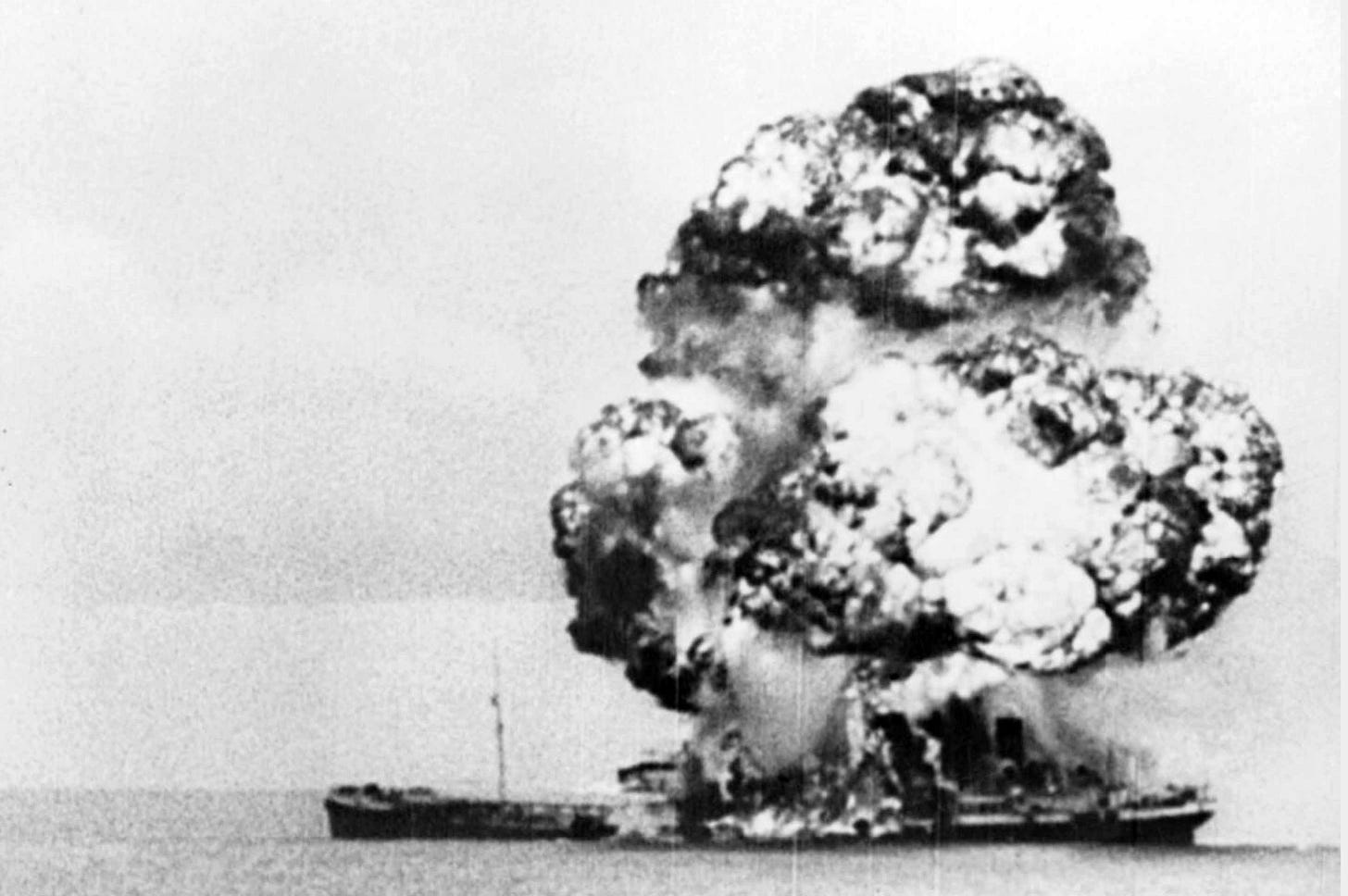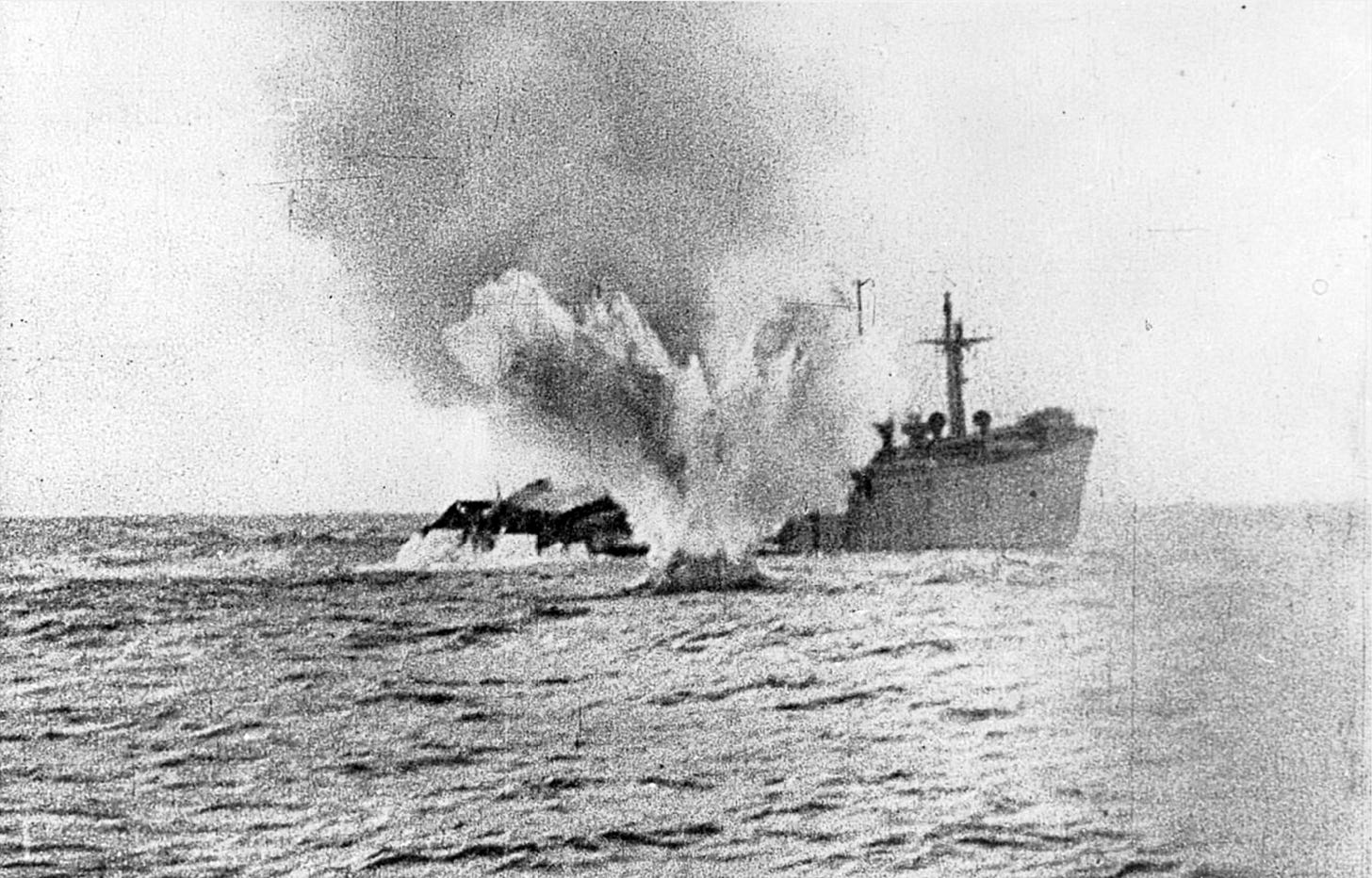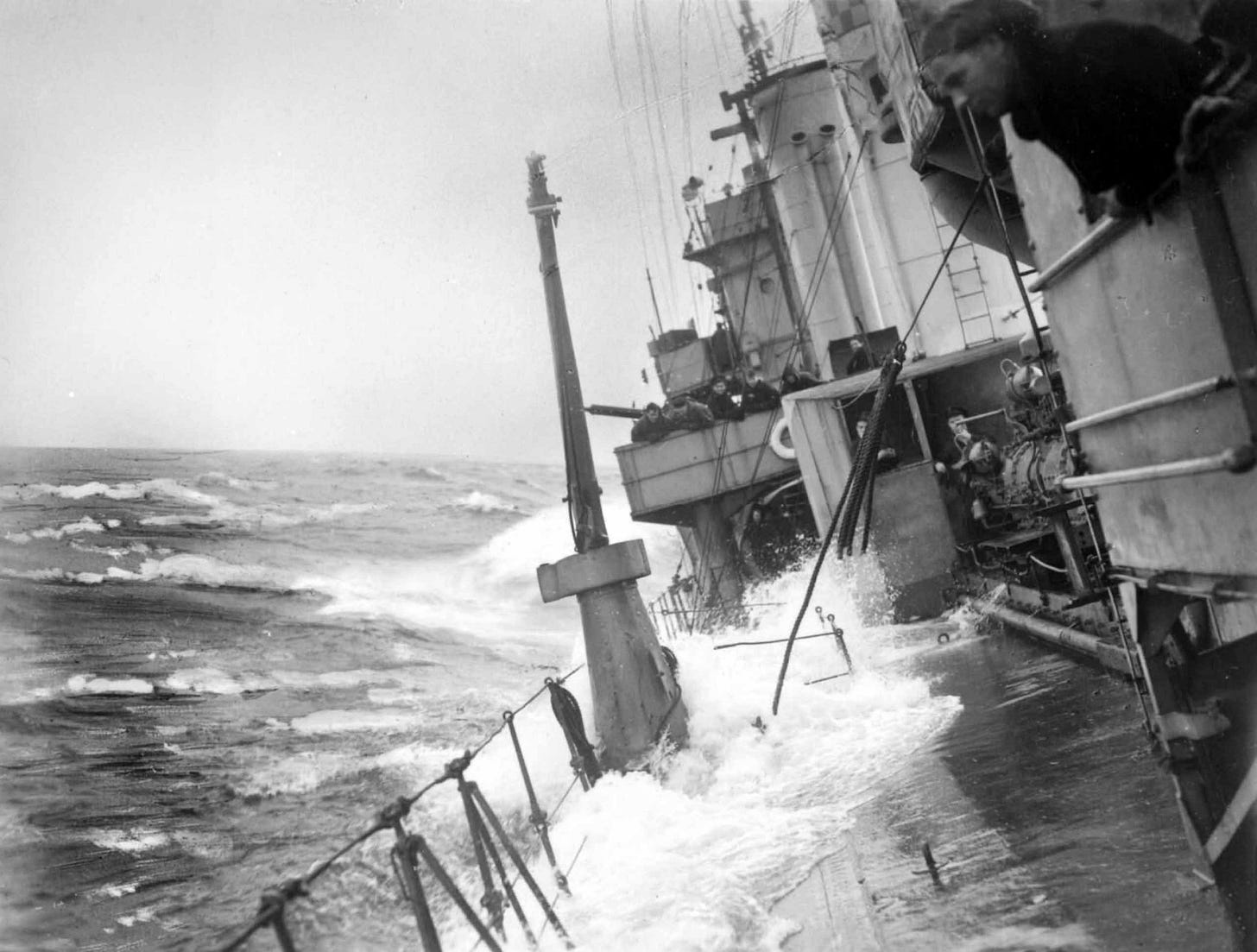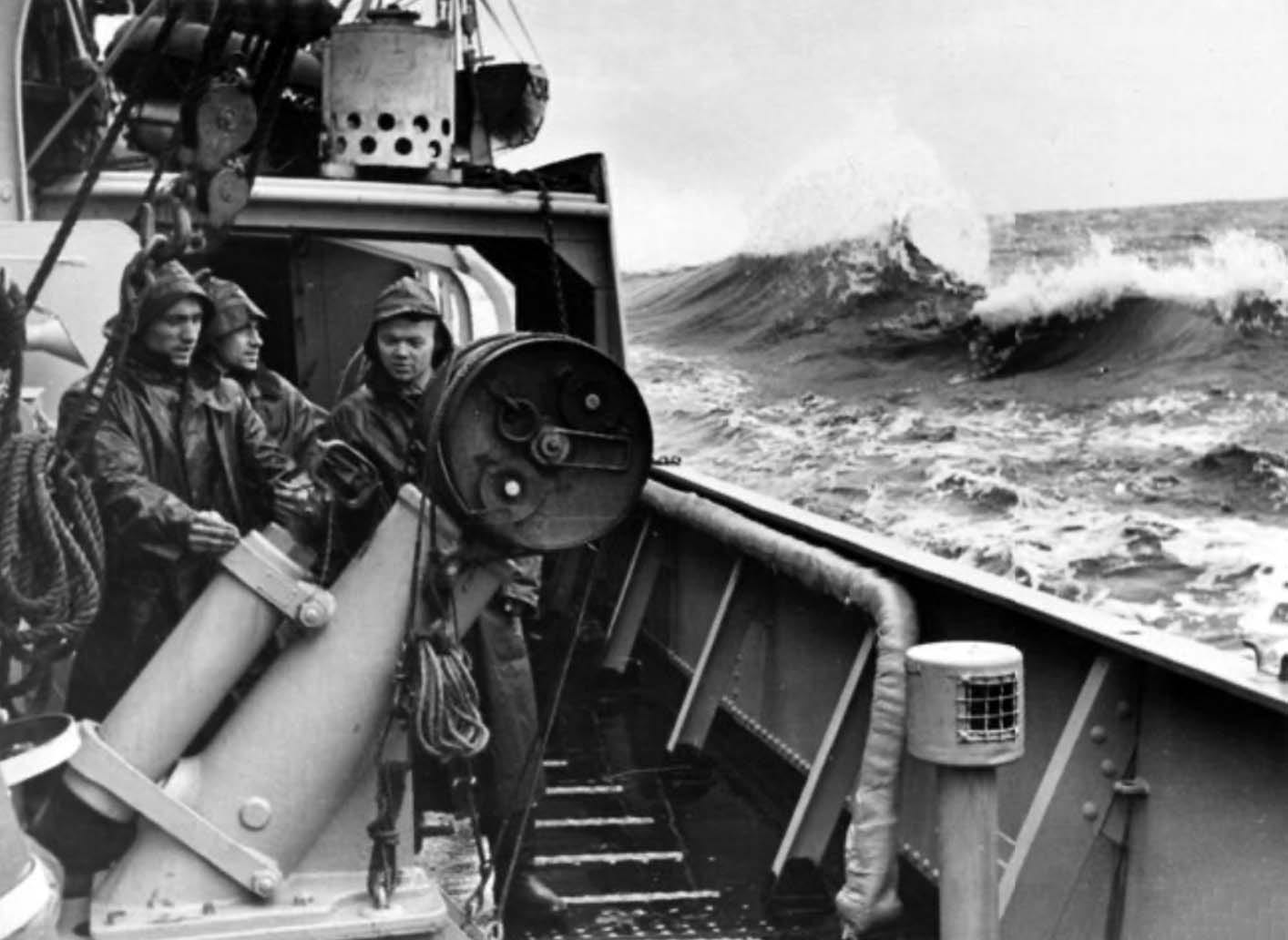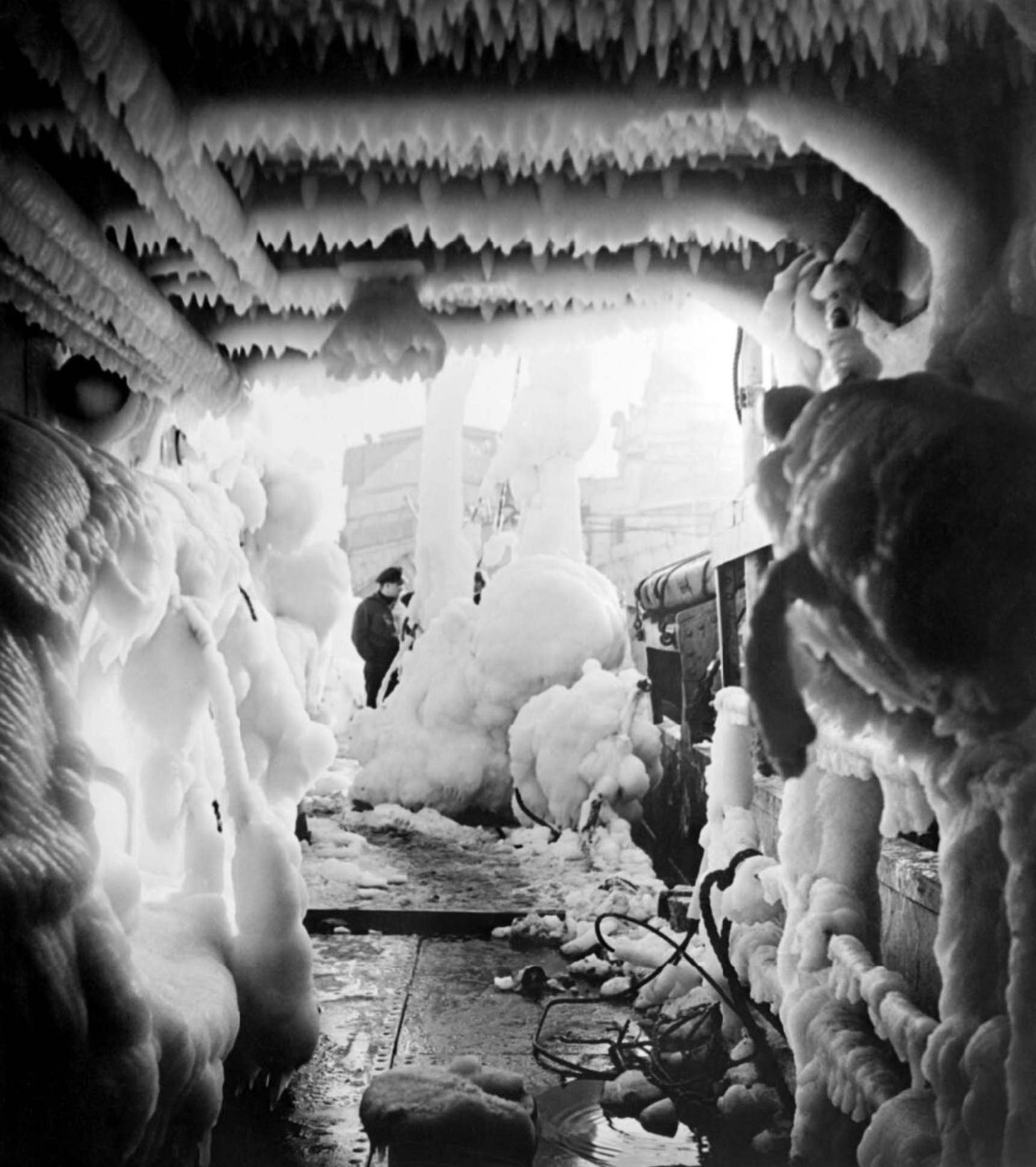U-Boat menace a priority
11th February 1943: Churchill describes the challenges of the 'Battle of the Atlantic'
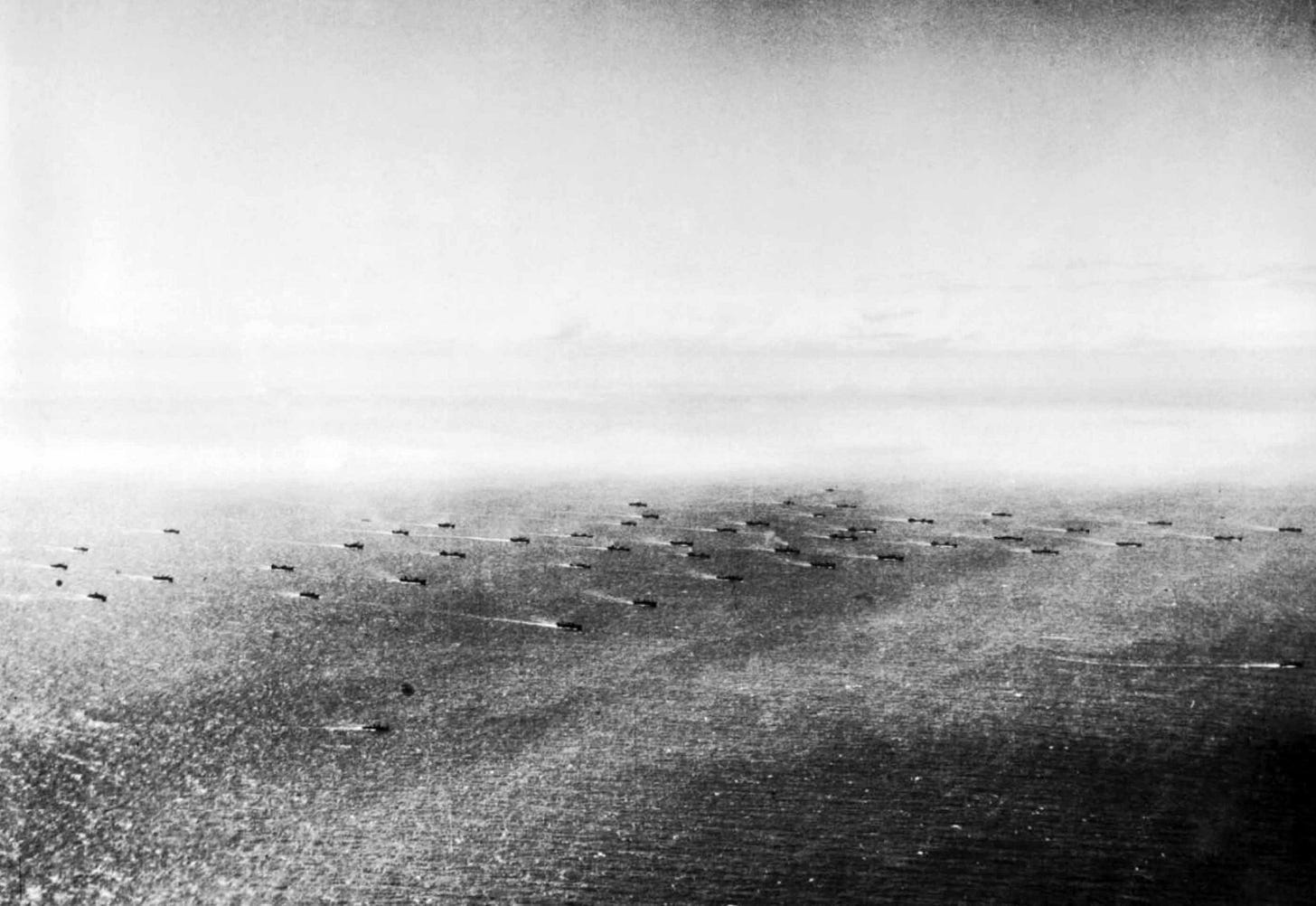
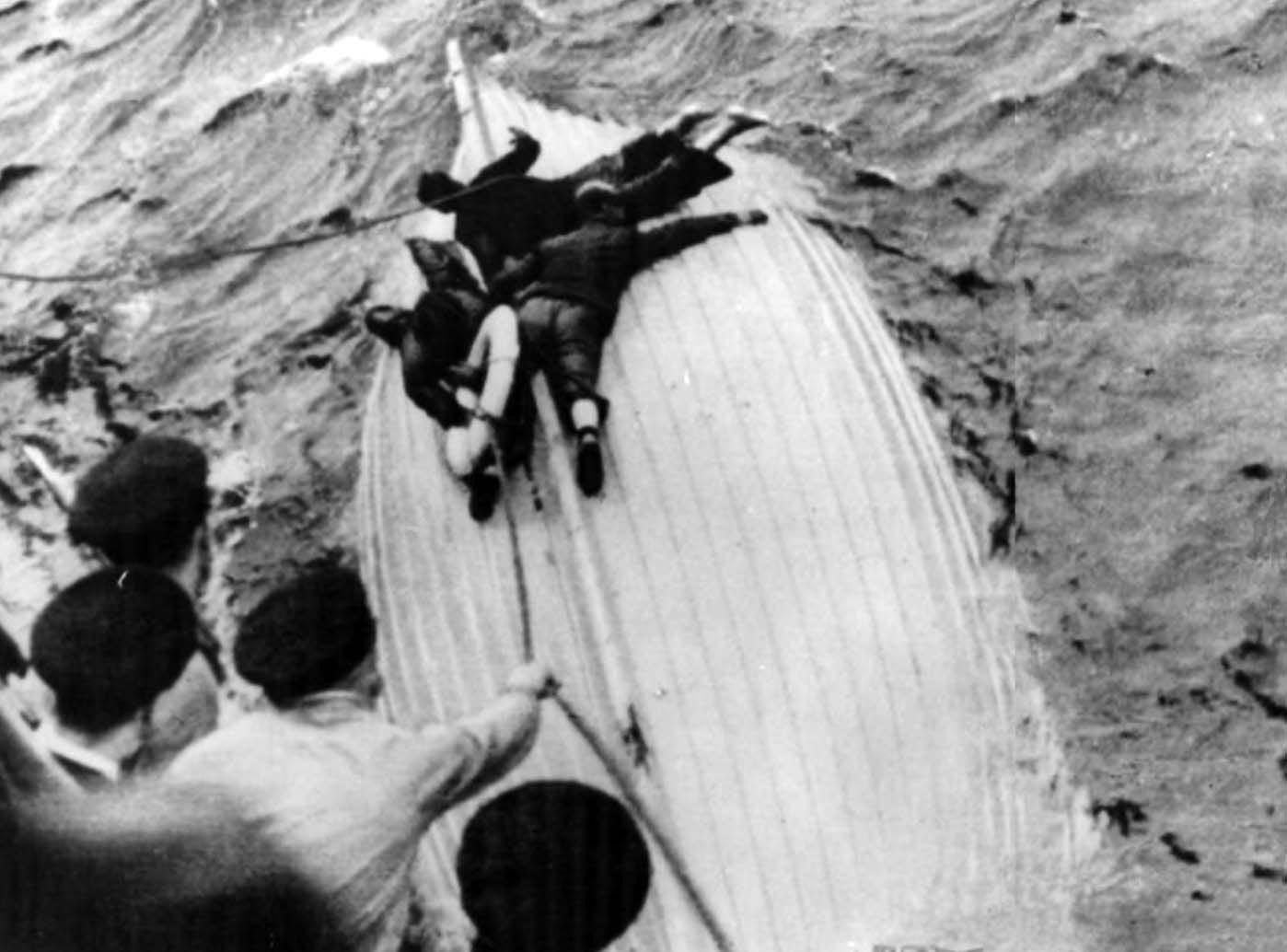
Churchill was back in Britain after his tour of the Middle East and the Casablanca Conference. Throughout the war he remained accountable to the House of Commons and only a year before had had to face two votes of 'No Confidence'. Now he faced the tricky position of providing Parliament and the British people with a proper picture of the progress of the war whilst at the same time not giving away information that would be of value to the enemy.
On the 11th February he gave a long speech in Parliament1 on the 'War Situation'. For Churchill, it was not just about reporting on the situation but building a morale-boosting picture that gave the public confidence.
But he would have been acutely aware of the very recent fate of SS Dorchester and Convoy SC118 in which hundreds of US servicemen, headed for Europe, had lost their lives in cold seas.
In a wide-ranging speech one issue dominated:
The dominating aim which we set before ourselves at the Conference at Casablanca was to engage the enemy's forces on land, sea, and in the air on the largest possible scale and at the earliest possible moment.
...
The United States has vast oceans to cross in order to close with her enemies. We also have seas or oceans to cross in the first instance, and then for both of us there is the daring and complicated enterprise of landing on defended coasts and also the building-up of all the supplies and communications necessary for vigorous campaigning when once a landing has been made.
...
It is because of this that the U-boat warfare takes the first place in our thoughts.
... The waste of precious cargoes, the destruction of so many noble ships, the loss of heroic crews, all combine to constitute a repulsive and sombre panorama. We cannot possibly rest content with losses on this scale, even though they are outweighed by new building, even if they are not for that reason mortal in their character. Nothing is more clearly proved than that well-escorted convoys, especially when protected by long-distance aircraft, beat the U-boats.
I do not say that they are a complete protection, but they are an enormous mitigation of losses. We have had hardly any losses at sea in our heavily escorted troop convoys. Out of about 3,000,000 soldiers who have been moved under the protection of the British Navy about the world, to and fro across the seas and oceans, about 1,348 have been killed or drowned, including missing. It is about 2,200 to one against your being drowned if you travel in British troop convoys in this present war.
Even if the U-boats increase in number, there is no doubt that a superior proportionate increase in the naval and air escort will be a remedy. A ship not sunk is better than a new ship built. Therefore, in order to reduce the waste in the merchant shipping convoys, we have decided, by successive steps during the last six months, to throw the emphasis rather more on the production of escort vessels, even though it means some impingement on new building.
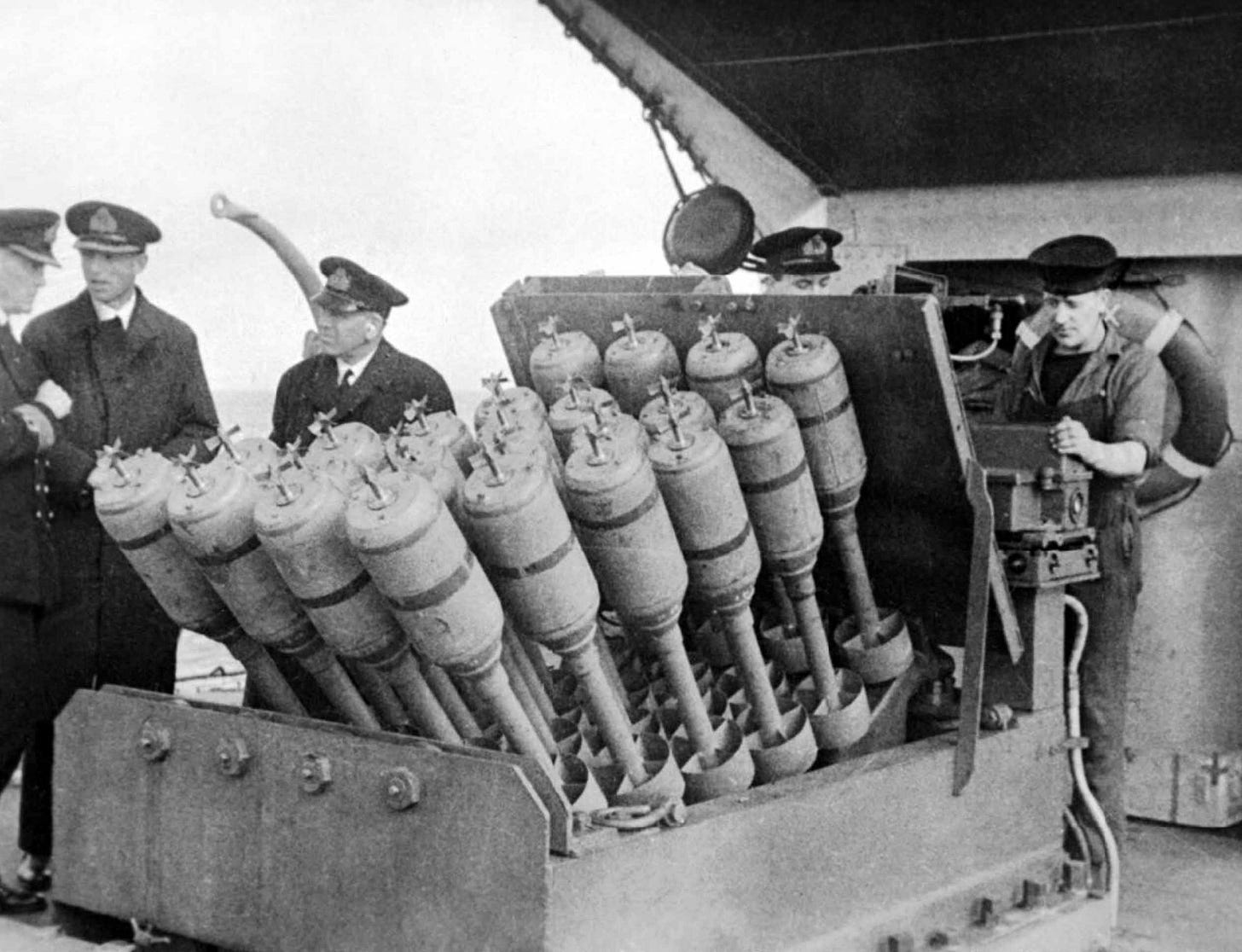
Very great numbers of escort vessels are being constructed in Great Britain and the United States, equipped with every new device of anti-U-boat warfare in all its latest refinements. We pool our resources with the United States, and we have been promised, and the promise is being executed in due course, our fair allocation of American-built escort vessels.On the offensive side the rate of killing U-boats has steadily improved. From January to October, 1942, inclusive, a period of 10 months, the rate of sinkings, certain and probable, was the best we have seen so far in this war, but from November to the present day, a period of three months, that rate has improved more than half as much again.
At the same time, the destructive power of the U-boat has undergone a steady diminution since the beginning of the war. In the first year, each operational U-boat that was at work accounted for an average of 19 ships; in the second year, for an average of 12, and in the third year for an average of 7½. These figures, I think, are, in themselves, a tribute to the Admiralty and to all others concerned.
One relatively small but important point in the speech was that he had to inform the British that their armies in Africa were now falling under American Command:
As the Desert Army passes into the American sphere it will naturally come under the orders of General Eisenhower. I have great confidence in General Eisenhower. I regard him as one of the finest men I have ever met.
The unprecedented volume of munitions coming across the Atlantic were to change not just the course of the war, but the balance of power between the Allies.
